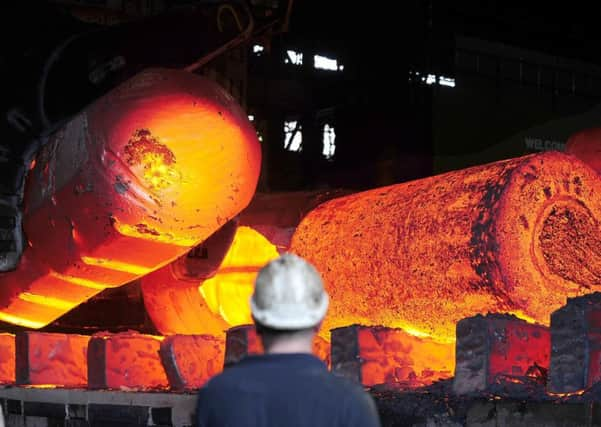Saving steel '˜needs national plan'


A new report calls for a national steel strategy including reforms in seven areas to put British steel on a more secure footing.
Recommendations include a clear plan for steel once Britain has left the European Union, including keeping access to the European single market for steel and related industries, such as motor manufacturers.
Advertisement
Hide AdAdvertisement
Hide AdIt also calls for action on the “dumping” of cheap Chinese steel on the world market, a factor widely blamed for the woes facing the industry in Europe in recent times.
The report by the All Party Parliamentary Group on Steel was written in partnership with the Leeds University Business School.
Stocksbridge and Penistone MP Angela Smith, a member of the group said: “The members of the Parliamentary steel group not only believe steel has a great future but that it also needs to form one of the cornerstone of the country’s future industrial strategy.
“It is vital, we think the government seriously considers the suggestions raised in this report.
Advertisement
Hide AdAdvertisement
Hide Ad“This is especially so, if we want to see a prosperous and successful steel industry as we move to a future outside the EU.”
The report suggests action should be taken on the market in energy, a major cost for the steel industry.
It recommends the Government give a clear commitment to use British steel in major public projects such as the HS2 high speed rail line.
Business rates should be changed to end the “perverse incentive” which punishes companies for investing in steel businesses, the report says.
Advertisement
Hide AdAdvertisement
Hide AdIt also highlights the need for measures to ensure more of the steel supply chain is retained in the UK.
Following recent closures, such as the loss of the Redcar steelworks, the report suggests the Government should provide funding to allow plants to be mothballed while a buyer can be found rather than being bulldozed.
It says: “One choice is to continue the path that we have been on for the last few devades: one of accelerating decline that may well lead to the end of the steel industry in this country.
“To do nothing is always the easier short-term path for decision-makers, but if taken it will have a devastating impact on steel communities, local businesses, national manufacturing capacity and on the UK economy as a whole.
Advertisement
Hide AdAdvertisement
Hide Ad“There is another path that can lead to the reinvigoration of the steel industry of the UK, buult on sustainable business, innovation and high quality jobs.”
The crisis facing the British Steel industry came to a head last year when Tata Steel announced its intention to sell its operations in this country with the implication that they could close if no buyer was found.
In November, it was announced a deal had been agreed for Tata to sell its speciality steel business, including operations in Rotherham and Stocksbridge to Liberty House.
Tata subsequently announced a reversal of its decision to withdraw from the UK entirely and set out new investment plans at its plants including the giant Port Talbot works in South Wales.
The fortunes of British steel have been helped by the weakening of the pound in the aftermath of the vote to leave the European Union.